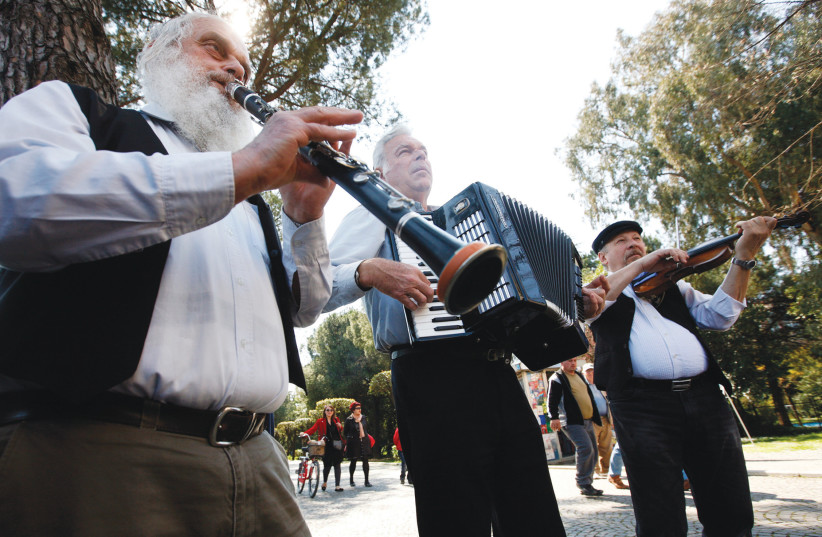Two years ago, at the Balkans Forum Against Antisemitism organized by the Combat Antisemitism Movement (CAM), Prime Minister of the Republic of Albania Edi Rama eloquently called his country “a great example of the embodiment of the fight against violent extremism.”
In a world increasingly gripped by extremism and radicalization, Albania is not at the forefront of many minds in the battle for greater tolerance. Nevertheless, it should serve as an illustration of how a nation, a majoritarian Muslim one at that, can help instill a greater understanding between people of different backgrounds, religions and ethnicities.
Much of this attitude towards the other can be found in the cultural identity of Albania. Some have suggested that it is deeply rooted in Besa, a code of honor that enshrines loyalty to all people, especially in their time of need.
It was Besa that ensured Albanians not only refused to cooperate with the Nazis in identifying their Jewish population during the Holocaust but also became a sanctuary for Jews seeking refuge from outside of the nation’s borders.
Tellingly, it was one of the few places which had more Jews at the end of World War Two than before it. More broadly, Albanian hospitality and kindness towards all permeates all levels of society. It is a source of pride for the people of Albania.

There are many explanations given for this attitude towards others, some claim it is deeply rooted in Albanian folk tradition, while others suggest it is a byproduct of Communism, which pressed an atheistic belief that lowered religious barriers and possible extremism. However, the latter justification does not explain the open and tolerant attitude, which existed long before and after Communism.
Albanian generosity
ONE SUCH example is from 2014, when a group of Muslims in Malbardh, a small village in northern Albania, raised money to rebuild a medieval Catholic church that had been destroyed under Communism. This shows that, despite being seen as divisive in some areas of the world, religion in Albania can be a unifier. It is not a polarizing point; religious differences are not just tolerated but respected.
As an Albanian and someone who has visited the region on a number of occasions, we can both testify that this attitude appears to be something inherent in Albanian society. You see and feel it with the highest political echelons to the average man and woman. It codifies decision-making and a favor asked of a stranger in the street.
It is a society that is not constrained by borders, the majority of Albanians live outside of the country. While there are 2.8 million Albanians resident in the republic, there are many more that number living in a global Albanian Diaspora.
So, while as a Communist state Albania was forced into isolation, today it is anything but. It is ready, willing and able to help serve as a bridge between peoples and religions. Albania is a small country, sometimes far from the global political agenda. Nevertheless, it has a lot to teach.
What can we learn from Albania?
It is a nation that should be studied and understood because if a little of the tolerance and loyalty to the “other” that is found in Albania could be spread around the world it would certainly be a very positive thing. Albania should be seen as a lab and incubator of tolerance and religious coexistence.
While many countries like to talk of a past of co-existence or work towards a better future, Albanians are living it in the here and now. Albania should be an important stop for all those who care about a more tolerant world. It is a place where people of different religious and ethnic backgrounds don’t just live side by side but have a culture of assistance and support.
Whether it is saving people of another religion from outside oppression or building a religious building that they will never use, Albanians instinctively understand the need to help each other.
It is about community and creating a big tent for all. Not to look at people and their different identities in order to divide them, but to seek that which unites and find common cause.
There are many different co-existence and tolerance projects around the world that seek ways to have Jews, Muslims and Christians work together towards greater tolerance. Many are trying to find the ingredients that can make them successful.
We strongly recommend to them that there is no need to reinvent the wheel, just visit Albania and learn about its history and culture. The missing ingredient is already there.
Valentina Leskaj is a former Albanian minister of labor and social affairs and a member of the Combat Antisemitism Movement (CAM) Advisory Board. Robert Singer is the chairman of the Center for Jewish Impact and a senior adviser to the Combat Antisemitism Movement.
